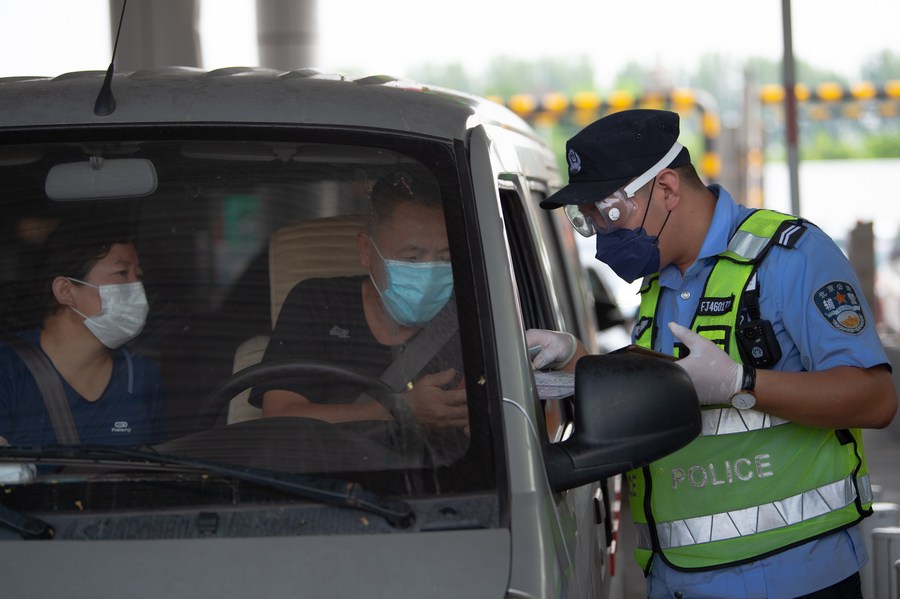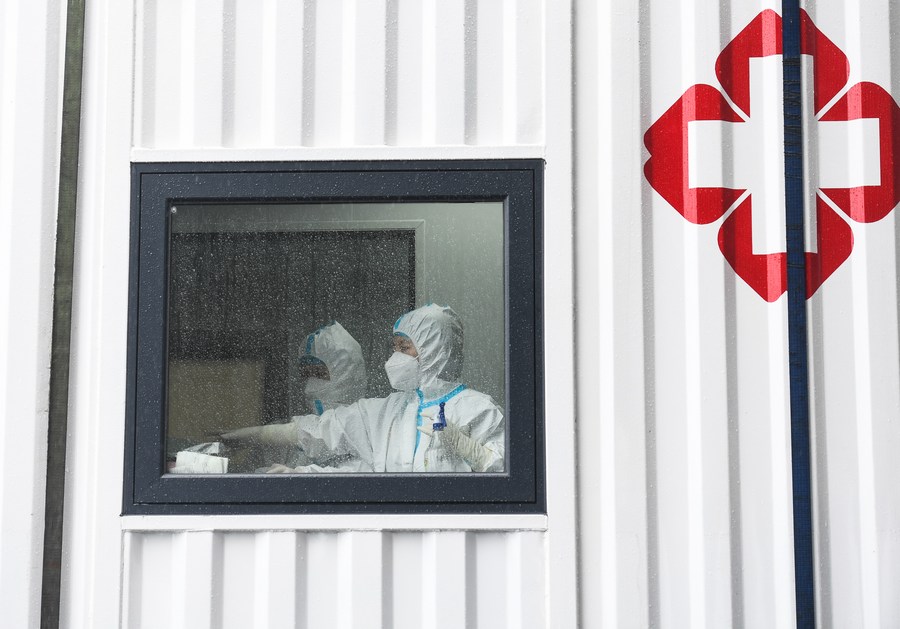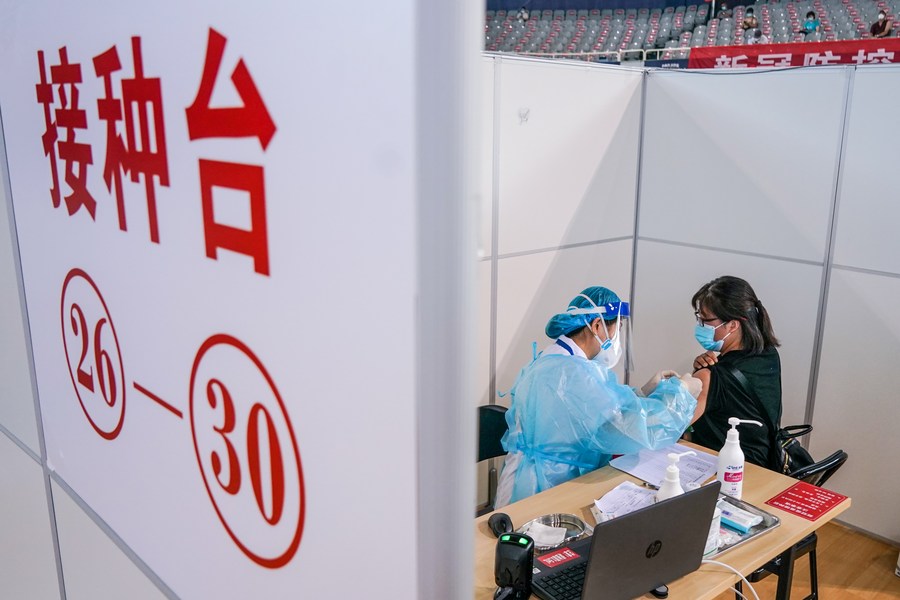The Delta outbreak has triggered massive travel restrictions in Jiangsu and some other parts of the country, including the suspension of flights, coach and train services, and travel to medium and high-risk areas.
Trips to Beijing from areas with high- or medium-risk for COVID-19 have been temporarily suspended.
The number of passengers departing and arriving at the city's six railway stations totaled nearly 2 million between Aug. 1 and 4, down 35 percent from the same period during the previous week. Its two airports have also suspended flights from more than a dozen cities nationwide.

A policeman checks information of people entering Beijing at a road checkpoint in Beijing, capital of China, Aug. 6, 2021. (Xinhua/Chen Zhonghao)
The current epidemic prevention and control efforts in Hubei, featuring increased nucleic acid testings and large-scale inoculations, can help quickly contain the resurgence, said Yu Chuanhua, an expert in epidemiology and health statistics at Wuhan University.
"Given the severe epidemic situations worldwide, China still needs to be vigilant against the virus as any slacking could lead to bigger outbreaks and even ones spiraling out of control," Yu said.
CONTROLLABLE
Nanjing reported no new local COVID-19 cases for the first time on Sunday since some airport-related cluster infections of the Delta variant emerged in the city on July 20.
Following stringent control measures including rounds of mass nucleic acid testing, Nanjing has seen a downward trend in its confirmed cases, with only three new cases reported in the past three days and reporting a total of 231 cases as of Sunday.

Staff members put on personal protective equipment in a "Falcon" air-inflated testing lab for COVID-19 nucleic acid testing at Nanjing Railway Station in Nanjing, capital of east China's Jiangsu Province, July 27, 2021. (Xinhua/Ji Chunpeng)
"It is not the first time for China to fight against the Delta variant. We have successfully contained the epidemic in Guangzhou, and the epidemic in Nanjing is gradually being put under control," said Zhang Wenhong, head of the Center for Infectious Diseases at the Shanghai-based Huashan Hospital of Fudan University.
China's experience in prevention, control and treatment is still very effective so far, Zhang said.
"Slowing down population mobility at this stage will be a great help to blocking the secondary transmission of the virus," he said.
He Qinghua, an NHC official, acknowledged that the current wave is more complicated and has put some strain on response efforts since it has multiple imported sources and has affected a wide range of people and places.
Vaccines administered across the country -- having surpassed 1.78 billion doses as of Sunday -- demonstrate good preventive and protective effects against the Delta variant, he said.

A resident gets inoculated against COVID-19 at a vaccination site in a stadium in Nanjing, capital of east China's Jiangsu Province, Aug. 2, 2021. (Xinhua/Li Bo)
"As long as local authorities strictly implement various prevention and control measures, I think the epidemic will be largely under control within two to three incubation periods," said the official.






